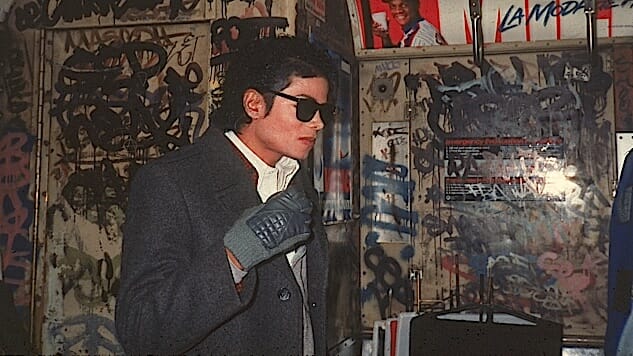What Leaving Neverland Reminds Us About the Statute of Limitations
Photo courtesy of Getty
There are countless ways that HBO’s recent documentary, Leaving Neverland, has forced us as a society to challenge our longstanding narratives. The scope of Michael Jackson’s star power has helped to cast a wide net in terms of who feels impacted by the documentary’s claims, and what we’re questioning—everything from the artistic merit of our childhood idol to the nefarious side of celebrity to the culpability of parents looking to create a better future for their kids. Amid all the hubbub and debate, however, there remains one overarching question that is quieter, subtler, but needs to be unpacked all the same: is our legal system obstructing the very justice it’s meant to serve?
In the documentary, two men, Wade Robson and James Safechuck, describe in graphic detail the ways in which Jackson allegedly manipulated and sexually abused them as children. Both recount spending nights alone with Jackson in his bed, and the many sexual acts that they were coerced into performing, out of what the singer deemed “love.” At one point, Robson recalls how Jackson once told him that “God brought us together,” a sentiment that clearly impacted the way that a young Robson understood what was happening between them. Safechuck told the story of how Jackson brought him to a jeweler when he was 10 so that they could buy rings for one another. They later had a “wedding ceremony” to consecrate their relationship.
Over the course of four hours, the men gaze distractedly off into the distance, swallow nervously, and, in the case of Safechuck, frequently end their sentences with an upward lilt, as though they themselves can’t really wrap their minds around the things they’re saying. It’s as uncomfortable to watch as it is compelling, due in no small part to the fact that these are two men who have testified in defense of Jackson in the past, adamantly denying that the singer had ever harmed them in any way. (The Jackson family and estate, for the record, point to this incongruency as proof that the men are lying and just trying to make money off their claims.)
It’s important to note that at the time that they were called to testify for Jackson the first time, in 1993, they were 11 and 15, respectively. According to Robson’s present allegations, that Jackson sexually abused him between the ages of 7 and 14, he would have still been being abused by the singer at the time of his testimony. Furthermore, by the time they were witnesses in a court of law, both boys had already been coached for years on how to hide their relationships and deny any sexual interactions with Jackson. The singer had, in Robson’s words, started drilling into him early on that “he and I would go to jail for the rest of our lives” if anyone ever found out what they were doing.
Following the harrowing two-part, four-hour documentary, Oprah Winfrey stepped into the fray with her own hour-long special, After Neverland, aimed at expanding the conversation beyond Jackson and his celebrity to the concept of childhood sexual abuse, a topic that she has broached many times over the years. With Robson, Safechuck, and director Dan Reed sitting on the stage beside her, and an audience full of childhood sexual abuse survivors before her, Winfrey laid bare the facts: regardless of what naysayers might say about the validity of their claims, both men exhibit plenty of the behaviors typical of someone who might be finally coming to terms with their trauma.
And in doing so, Winfrey opened up the conversation to consider a major hiccup in both Robson and Safechuck’s ability to seek retribution for Jackson’s alleged abuse: They didn’t realize they were abused until, in the eyes of the court, it was too late. When they came forward in 2013 to accuse the singer of years of sexual abuse, their cases were ultimately dismissed not because of a lack of credibility, but because their statute of limitations were up. They had both “waited” too long after the alleged abuse took place, though as Winfrey and experts have pointed out, there are a myriad reasons why victims are unable to come forward at all. And one of the major reasons is the abuser himself.
-

-

-

-

-

-

-

-

-

-

-

-

-

-

-

-

-

-

-

-

-

-

-

-

-

-

-

-

-

-

-

-

-

-

-

-

-

-

-

-








































